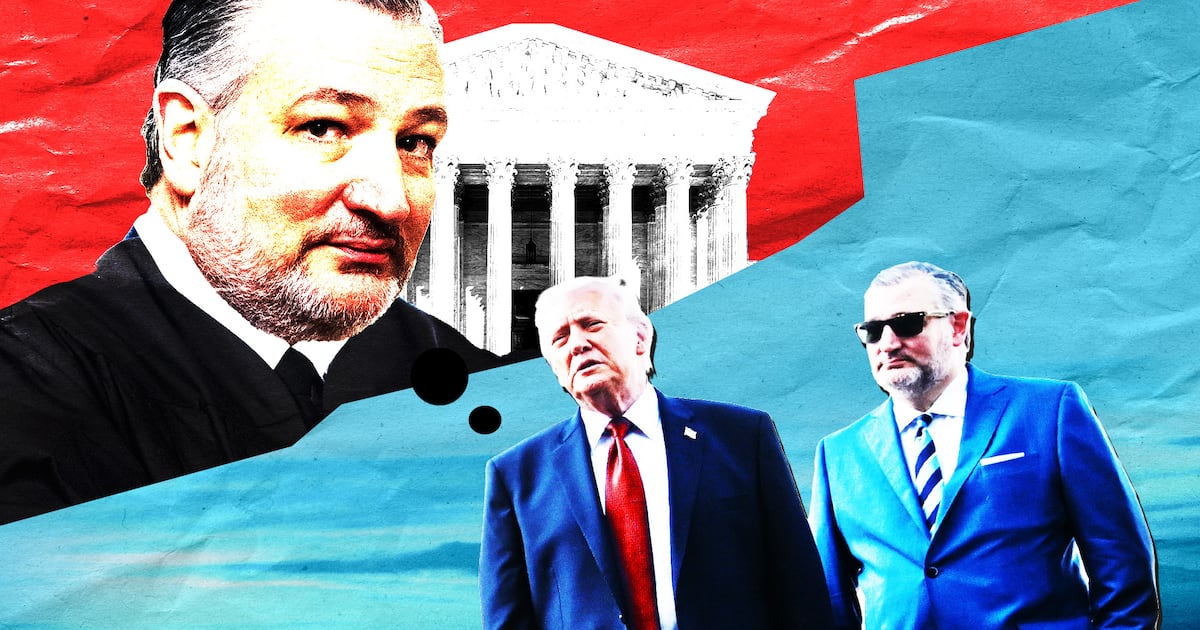Russia and the U.K. are on course for a serious diplomatic crisis as speculation mounts that the attempted murder of a former Kremlin double agent and his daughter—which happened in the quaint English cathedral town of Salisbury on Sunday—was in fact a state-sponsored assassination attempt carried out by Vladimir Putin’s government.
Former spy Sergei Skripal, 66, and his daughter Yulia, 33, remain critically ill in a hospital after they collapsed near a shopping center after being exposed to what police believe was a nerve agent. An eyewitness who discovered the pair said they were passed out on a bench, frothing at the mouth, and their eyes “were wide open but completely white.”
British police confirmed Wednesday that the incident was “attempted murder by administration of a nerve agent” but refused to identify the exact substance used in the attack. Police also confirmed that they believe the two victims were “targeted specifically,” and said a police officer who responded to the scene is also critically ill in a hospital.
A report in the Times of London, citing British intelligence sources, states that MI5 is treating the incident as a state-sponsored assassination attempt linked to Russia and Prime Minister Theresa May confirmed that the investigation has been taken over by counterterrorism detectives from London-based Scotland Yard rather than local police.
While British intelligence isn’t ruling out alternative theories—such as a personal dispute or a false-flag operation attempting undermine Putin ahead of this month’s presidential election—early indications have pointed them towards to a Russia-linked assassination attempt. Scotland Yard's investigation will reportedly include the deaths of Skripal’s wife, Liudmila, who died of cancer in 2012, and his son, who died in St. Petersburg last year.
In a damning discovery, The Telegraph found an old TV interview with Putin from the time of Skripal’s release to the U.K.—as part of a spy swap—in which the Russian president threatened to have the former agent killed.
At the time of Skripal’s release, Putin is reported to have said: “Traitors will kick the bucket. Trust me. These people betrayed their friends, their brothers-in-arms. Whatever they got in exchange for it, those 30 pieces of silver they were given, they will choke on them.”
The British government held a crisis meeting Wednesday in response to the incident, led by Home Secretary Amber Rudd. The emergency meeting followed Foreign Secretary Boris Johnson’s warning Tuesday that the British government would respond “robustly” to any evidence of Russia’s complicity in the suspected poisoning.
Although Johnson made clear that he was not, as this stage, accusing Russia of attempted assassination, he said there were “echoes” of the death of Russian defector and former agent Alexander Litvinenko, who was murdered by polonium poisoning in London. A British public inquiry concluded that Putin was most likely responsible for the death.
Johnson said in the British parliament on Tuesday: “Honourable members will note the echoes of the death of Alexander Litvinenko in 2006. I say to governments around the world that no attempt to take innocent life on U.K. soil will go unsanctioned or unpunished.”
He added: “We don’t know exactly what has taken place in Salisbury, but if it’s as bad as it looks, it is another crime in the litany of crimes that we can lay at Russia’s door. It is clear that Russia, I’m afraid, is now in many respects a malign and disruptive force.”
Following the COBRA meeting, the substance used in the murder attempt was identified as a nerve agent by Scotland Yard officers. While police have refused to identify the specific substance at this stage, the most well-known nerve agents are VX and sarin.
"Having established that a nerve agent is the cause of the symptoms leading us to treat this as attempted murder, I can also confirm that we believe the two people who originally became unwell were targeted specifically," said Assistant Commissioner Mark Rowley, head of Counter Terrorism Policing. "Our role now, of course, is to establish who is behind this and why they carried out this act."
Russia has strongly fought back against the mounting speculation linking it to the incident. Russia’s foreign ministry has strongly denied any involvement, with spokesperson Maria Zakharova dismissing the speculation as “groundless” and saying the U.K. must properly investigate the incident before casting blame on Russia.
One of the prime suspects in the Litvinenko murder, pro-Kremlin MP Andrei Lugovoi, told Russia media: “I don’t rule out that this is another provocation by British intelligence agencies. Whatever happens on [British] territory, they start yelling: ‘He was killed, he was hung, he was poisoned!’ and that Russia is to blame for everything. This is to their advantage.”
As the investigation continued on Wednesday, British police asked potential witnesses to come forward and urged people not to speculate on what crime may or may not have been committed.
Assistant Commissioner Rowley said: “Working alongside Wiltshire police and partner agencies, we continue to carry out extensive inquiries. This investigation is at the early stages and any speculation is unhelpful at this time."






